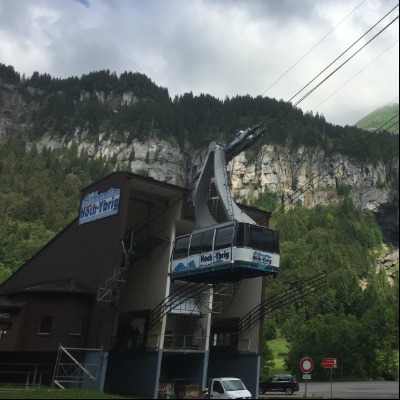Recco - Technological Innovation Driven By 40 Years Of Rescue Partnerships

In 1983, Magnus Granhed traveled to Zermatt with the first prototype of the R1 RECCO detector. His meeting with Beat Perren, founder of Air Zermatt, and Bruno Jelk, head of rescue in Zermatt, marked an important milestone for the future of the RECCO system.
During this early development phase, the handheld RECCO detector with its associated backpack was heavy — not like the lightweight detectors search-and-rescue teams use today. Despite the weight, the technology sparked interest in both Perren and Jelk. Perren and Jelk’s early investment in the RECCO system started a chain of events in the search-and-rescue world that has led to over 900 partnerships in 32 countries, making the RECCO system a household name.
“When Magnus first came to us with the RECCO system, we found it interesting that it could locate an avalanche victim very quickly and precisely,” explained Beat Perren, who founded the helicopter rescue company Air Zermatt in 1968.
“I was impressed that the user did not need to carry any active unit with batteries or any similar source of power,” said Perren. At the time, there was nothing like the RECCO system on the market. In addition to its rescue service, Air Zermatt wanted to improve the whole rescue process in the area. Jelk thought from the start that it would be ideal if people were inherently searchable through their clothing, without the need to carry additional equipment on their person. This sparked the company’s push into integrating reflectors into ski clothing and equipment, with early brand partners putting RECCO reflectors into jackets, pants and ski boots.
In 2015, Air Zermatt played an important role once again when RECCO debuted the next evolution of its system: the RECCO SAR Helicopter Detector. The Helicopter Detector allows search-and-rescue teams to search for missing people year-round during all outdoor activities, no matter the season or terrain.
“I was convinced that the possibilities to search would improve significantly with the new helicopter-carried detector,” Perren said. “This was confirmed during tests on the South Face of Monte Rosa where missing victims who weren’t able to be located previously could now be found.”
“There are people that go missing during summer who cannot be located,” Jelk added. “The chances of finding them would improve significantly if they were equipped with reflectors.”
Perren concludes: “RECCO has over the years constantly driven the development forward, which has been very important. Although, the biggest value is that recreationists are equipped with reflectors, which simplifies the search process monumentally.”
To read more about the development of RECCO technology and brand partners network visit the RECCO History page.













